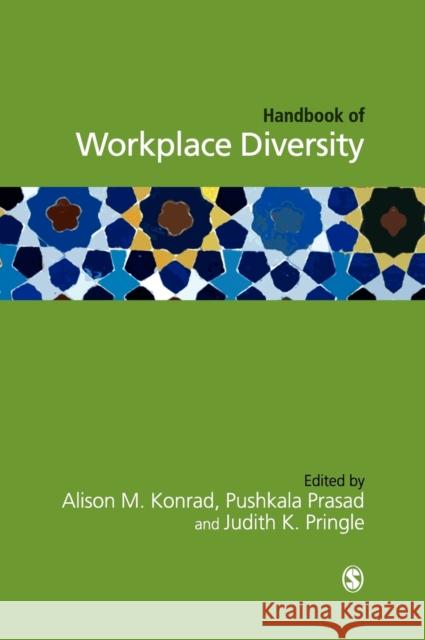Handbook of Workplace Diversity » książka
Handbook of Workplace Diversity
ISBN-13: 9780761944225 / Angielski / Twarda / 2006 / 568 str.
"By assembling an international cast of contributors from all walks of research life, Professors Prasad, Pringle and Konrad successfully broaden the scope of scholarly discourse on workplace diversity. This stimulating volume considers how to define this fuzzy construct, what "differences" are more important than others, and how to make best use of alternative research methods at different levels of analysis. It reviews what we have learned about workplace diversity along several important dimensions (e.g., gender, race, ethnicity, weight, sexual orientation, disabilities, class), and it offers useful recommendations for how to conduct future research that will expand our knowledge of the implications of diversity for individuals, marginalized groups, work organizations, and societies'"
- Gary N Powell, Professor of Management, University of Connecticut "In this much-needed Handbook, an international collection of first-rate scholars deals incisively and perceptively with the problems of diversity, difference, inclusion, and cultural pluralism in organizations.This Handbook will be invaluable for researchers and advanced students - one of those books that stays on the top of the desk, covered with bookmarks'"
- Joanne Martin, Stanford University Globalization and its melting pot of different nationalities, ethnicities and cultures is attracting research that is gathering in substance and theory. A dynamic new field that represents a significant focus within management and organisation studies is emerging. This Handbook showcases the scope of international perspectives that exist on workplace diversity and is the first to define this hotly contested field. Part I of the Handbook dissects the theoretical reasons and shows how the study of workplace diversity follows different directions. Part II critiques quantitative and qualitative research methods within the field, while Part III investigates the parallels and distinctions between different workplace groups. Key issues are drawn together in an insightful introduction from the editors, and future directions for research are proposed in the conclusion. The Handbook of Workforce Diversity is an indispensable resource for students and academics of human resource management, organizational behavior, organizational psychology and organization studies.











